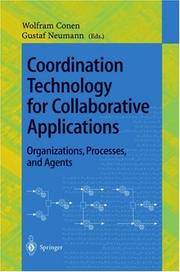| Listing 1 - 5 of 5 |
Sort by
|
Dissertation
Year: 2019 Publisher: Liège Université de Liège (ULiège)
Abstract | Keywords | Export | Availability | Bookmark
 Loading...
Loading...Choose an application
- Reference Manager
- EndNote
- RefWorks (Direct export to RefWorks)
The cooperative model is used all over the world. Cooperatives play an important role in the economy worldwide and gather more than 1,2 billion members. Considering the social, economical and environmental challenges, cooperatives can be a source of inspiration, a way to reinvent the economy, putting the social projects and their members at the centre of their organizations. This model shows us that it is possible to be socially responsible and economically viable, at the same time. Cooperatives play an important role in the agricultural sector, around the world. Farmers gather in order to improve their conditions and be stronger together. However, they have evolved a lot during the last decades, going from small traditional cooperatives into big international groups. In this paper, we will study the economic growth of the agricultural cooperatives, and the impact of it on their cooperative identity. We will attempt to answer the following question: does the economic growth in agricultural cooperatives lead to the loss of their cooperative identity? We will focus on the agricultural cooperatives in Belgium and we will study a subset of those, the dairy cooperatives. In order to address that question, we will start with a theoretical section. We will introduce the cooperative model, its characteristics, principles and values. We will then dive into the agricultural sector, and the pertaining cooperatives. We will study the evolution of those agricultural cooperatives. After that, we will identify aspects of the cooperatives’ characteristics that can be affected by those changes. Afterwards, we will conduct our field research in the dairy sector. We will interview two cooperatives, focusing on certain aspects: the cooperative project, governance, and their remuneration system. We will then analyze and discuss the results, in order to answer our question and draw a conclusion.
Book
ISBN: 9781499120639 149912063X Year: 2015 Publisher: Bruxelles Serendipity Accelerator
Abstract | Keywords | Export | Availability | Bookmark
 Loading...
Loading...Choose an application
- Reference Manager
- EndNote
- RefWorks (Direct export to RefWorks)
Comportement coopératif --- Condominium (Housing) --- Condominium (Real property) --- Coopération (Psychologie) --- Coopérativité --- Copropriétés --- Cotenancy --- Esprit coopératif --- Esprit de coopération --- Gemeenschappelijke eigendommen --- Horizontal property --- Mede eigendommen --- Mede-eigendommen --- Property [Horizontal ] --- Samenwerking (Psychologie) --- Cooperativeness --- Ownership --- Condominiums --- Methods engineering --- Handbooks, manuals, etc. --- Coworking

ISBN: 0415272424 0415272432 0203994930 9780203994931 9780415272421 9780415272438 1134484305 128014890X 9781134484256 9781134484294 9781134484300 Year: 2002 Volume: *5 Publisher: London New York Routledge
Abstract | Keywords | Export | Availability | Bookmark
 Loading...
Loading...Choose an application
- Reference Manager
- EndNote
- RefWorks (Direct export to RefWorks)
The Importance of Being Understood is an innovative and thought-provoking exploration of the links between the way we think about each other's mental states and the fundamentally cooperative nature of everyday life.Adam Morton begins with a consideration of 'folk psychology', the tendency to attribute emotions, desires, beliefs and thoughts to human minds. He takes the view that it is precisely this tendency that enables us to understand, predict and explain the actions of others, which in turn helps us to decide on our own course of action. This reflection suggests, claims Mor
Comportement coopératif --- Cooperation (Psychology) --- Cooperativeness --- Coopération (Psychologie) --- Coopérativité --- Esprit coopératif --- Esprit de coopération --- Mass psychology --- Psychologie [Sociale ] --- Psychologie sociale --- Psychology [Social ] --- Samenwerking (Psychologie) --- Social psychology --- Sociale psychologie --- Communication --- Psychology, Social --- Human ecology --- Psychology --- Social groups --- Sociology --- Interpersonal relations --- Psychological aspects --- Communication-- Psychological aspects. --- Ethics. --- Ethnopsychology. --- Social Sciences --- Cooperativeness. --- Social psychology. --- Psychological aspects.

ISBN: 2100034987 9782100034987 Year: 1997 Publisher: Paris Dunod
Abstract | Keywords | Export | Availability | Bookmark
 Loading...
Loading...Choose an application
- Reference Manager
- EndNote
- RefWorks (Direct export to RefWorks)
Firms and enterprises --- Development aid. Development cooperation --- Comportement coopératif --- Confiance (Psychologie) --- Cooperation (Psychology) --- Cooperativeness --- Coopération (Psychologie) --- Coopérativité --- Esprit coopératif --- Esprit de coopération --- Organisatiesociologie --- Organizational sociology --- Samenwerking (Psychologie) --- Sociologie des organisations --- Trust (Psychology) --- Vertrouwen (Psychologie) --- Communication in organizations --- Business planning --- Industrial relations --- Interpersonal relations --- Communication dans les organisations --- Projet d'entreprise --- Relations industrielles --- Relations humaines --- Gestion de projets --- Apprentissage organisationnel --- Efficacité organisationnelle --- management --- organisation de l'entreprise --- bedrijfsorganisatie

ISSN: 03029743 ISBN: 354064170X 9783540641704 3540696997 Year: 1998 Volume: 1364 Publisher: Berlin, Heidelberg : Springer Berlin Heidelberg : Imprint: Springer,
Abstract | Keywords | Export | Availability | Bookmark
 Loading...
Loading...Choose an application
- Reference Manager
- EndNote
- RefWorks (Direct export to RefWorks)
Given the broad popularity of Internet technology, even in its present immature state, and also the recent progress made towards a human-centered view of information technology, the time now seems ripe to essentially extend the scope and power of enterprise information systems. This carefully arranged book concentrates on the relationships between coordination technology and business application requirements and introduces general elements of a cooperative infrastructure allowing for the construction of collaborative applications. It is essential reading for research and development professionals active in the area as well as for IT managers interested in applying this promising new technology in order to remain competitive in the future.
Comportement coopératif --- Computer-based information systems --- Cooperation (Psychology) --- Cooperativeness --- Coopération (Psychologie) --- Coopérativité --- Esprit coopératif --- Esprit de coopération --- MIS (Information systems) --- Management information systems --- Management-informatiesystemen --- Samenwerking (Psychologie) --- Systèmes d'information de gestion --- Application software --- Development --- Computer Science --- Engineering & Applied Sciences --- Cooperativeness. --- Management information systems. --- Development. --- EIS (Information systems) --- Executive information systems --- Development of application software --- Computer science. --- Information technology. --- Business --- Computer communication systems. --- Software engineering. --- Artificial intelligence. --- Computer Science. --- Software Engineering/Programming and Operating Systems. --- Computer Science, general. --- Information Systems Applications (incl. Internet). --- IT in Business. --- Artificial Intelligence (incl. Robotics). --- Computer Communication Networks. --- Data processing. --- Artificial Intelligence. --- Computer software engineering --- Engineering --- IT (Information technology) --- Technology --- Telematics --- Information superhighway --- Knowledge management --- Informatics --- Science --- AI (Artificial intelligence) --- Artificial thinking --- Electronic brains --- Intellectronics --- Intelligence, Artificial --- Intelligent machines --- Machine intelligence --- Thinking, Artificial --- Bionics --- Cognitive science --- Digital computer simulation --- Electronic data processing --- Logic machines --- Machine theory --- Self-organizing systems --- Simulation methods --- Fifth generation computers --- Neural computers --- Application software. --- Business—Data processing. --- Communication systems, Computer --- Computer communication systems --- Data networks, Computer --- ECNs (Electronic communication networks) --- Electronic communication networks --- Networks, Computer --- Teleprocessing networks --- Data transmission systems --- Digital communications --- Electronic systems --- Information networks --- Telecommunication --- Cyberinfrastructure --- Network computers --- Application computer programs --- Application computer software --- Applications software --- Apps (Computer software) --- Computer software --- Distributed processing --- Application software - Development
| Listing 1 - 5 of 5 |
Sort by
|

 Search
Search Feedback
Feedback About UniCat
About UniCat  Help
Help News
News